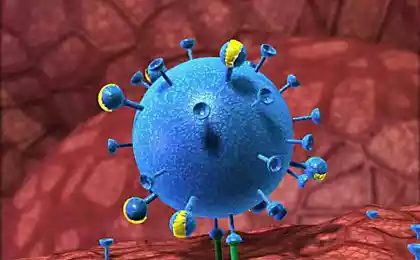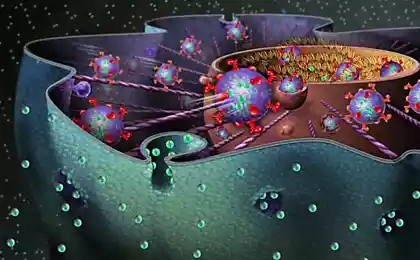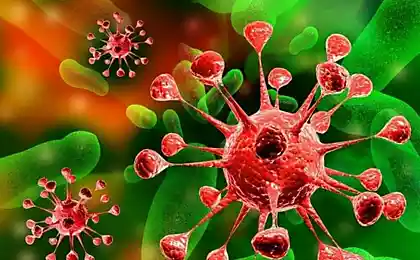424
The researchers found a "weak spot" of the flu virus
Scientists at the University of Texas at Austin have discovered that a protein produced by the influenza A flu virus, helps it outwit one of the natural protective mechanisms of our body. This makes the protein a potentially good target for antiviral drugs directed against influenza a virus.

When the influenza virus infects a human cell, it uses some of the techniques to make copies. In the study, scientists found that a protein produced by cells of the human body, DDX21, prevents the replication process. They also found that the protein created by the virus, NS1, in turn blocks DDX21 and promotes replication of the virus. "If we could figure out how to stop NS1 from binding to DDX21, we could stop the virus," said Robert Krug, a Professor at the University of Texas.
Krug said that in addition to the suppression of protective mechanisms of the body, the viral protein NS1 performs several other important functions for the virus. "This means that if you block the function of NS1, it is possible to eliminate not only its interaction with DDX21 but many other important functions," said Krug. The need for new antiviral drugs against the influenza virus is great. Because flu vaccines are not 100 percent effective, antiviral drugs play an important role in the spread of epidemics. However, the influenza A viruses are developing resistance to antiviral drugs currently used. Antiviral drugs could help the millions of people annually infected by flu, which kills up to 500 thousand people each year.
Source: nauka24news.ru/























